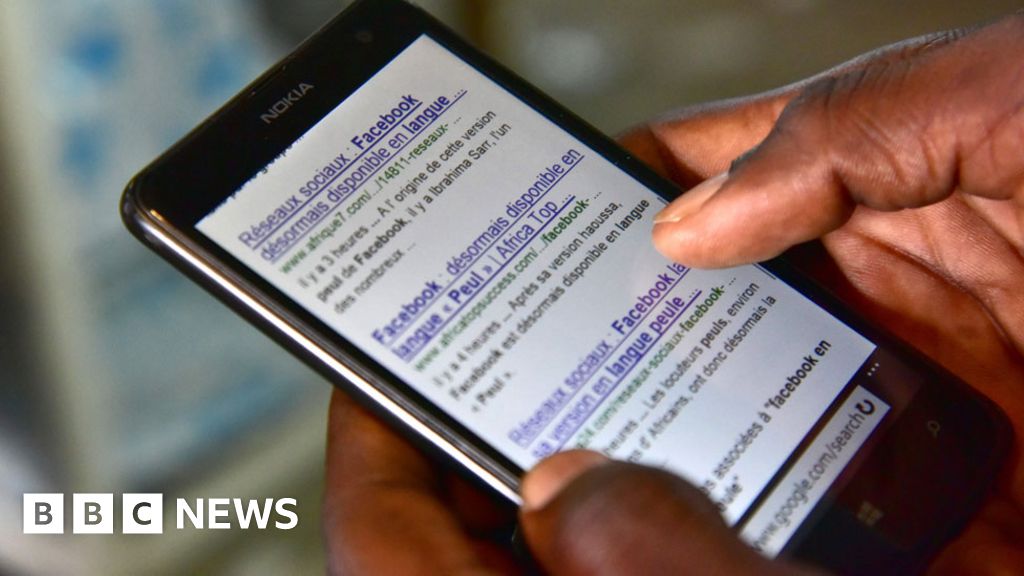Chad - Where Social Media Has Been Cut For A Year

 Image copyright
Getty Images
Image copyright
Getty Images
Activists in Chad are demanding that the government restore access to social media after it was cut off a year ago.
The restrictions were introduced on 28 March 2018 - shortly after the conclusion of a national conference which recommended changes to the constitution, to allow President Idriss Deby to remain in power until 2033.
Why was social media cut?
Critics of Mr Deby have been mobilising through social media since the last presidential elections in 2016.
The mobilisation proved effective, as according to the BBC's Vincent Niebede in the capital, Ndjamena, many Chadians were using social media to organise anti-government protests.
He says the internet became a real threat to the government.
Has it worked?
Access to Facebook, Twitter and WhatsApp, among others, has been blocked and since the ban was implemented, the number of demonstrations has dropped and those that have gone ahead have seen smaller numbers.
The restriction has mainly hit activists and small business owners, who rely on social media for advertising and customers.
One prominent Chadian blogger Deuh'b Emmanuel, told the BBC: "Without Facebook, without access to social media, it's like being in prison without a cell."
Some Chadians have managed to get around the ban by using internet proxies known as Virtual Private Networks (VPN). Although VPNs are free to use, some people told the BBC that they ultimately benefit telecommunications companies as social media platforms take longer to load and eat up more data.
However, the ban only affects a small number of people in Chad - just 4.9% of the population regularly accesses the internet, according to data gathered by Internet World Statistics.
What has the government said?
Activists have always blamed the government for the social media cut.
However, the authorities remained silent for a long time. Several ministries rejected responsibility.
The body in charge of electronic and postal communications, Arcep, said it received the order from the interior ministry.
On Wednesday, government spokesman Oumar Yaya Hissein told our reporter that the ban had been imposed for "security reasons".
Why has it lasted this long?
According to our reporter, the government considers social media a serious threat.
Rebel movements hostile to President Deby are still active in the country. In February the French military, at the request of the Chadian army, attacked a heavily armed rebel convoy arriving from Libya.
According to a security official interviewed by our reporter, the government believes social media could enable rebel leaders to recruit more young people.
There have also been cases of civilians capturing unlawful killings and beatings and publishing them online, which the government is keen to stop.
Will the government restore access to social media?
It seems highly unlikely. A group of Chadian lawyers took telecommunication companies to court in August 2018 in an attempt to restore social media access but lost the case. The lawyers appealed but the appeal court on Thursday dismissed their case, citing "security reasons" for the social media cut.
The collective of lawyers, lead by Daïnoné Frédéric and Frédéric Nanadjingué, have said they will now try to get the ban overturned by appealing to international authorities.
From Chip War To Cloud War: The Next Frontier In Global Tech Competition
The global chip war, characterized by intense competition among nations and corporations for supremacy in semiconductor ... Read more
The High Stakes Of Tech Regulation: Security Risks And Market Dynamics
The influence of tech giants in the global economy continues to grow, raising crucial questions about how to balance sec... Read more
The Tyranny Of Instagram Interiors: Why It's Time To Break Free From Algorithm-Driven Aesthetics
Instagram has become a dominant force in shaping interior design trends, offering a seemingly endless stream of inspirat... Read more
The Data Crunch In AI: Strategies For Sustainability
Exploring solutions to the imminent exhaustion of internet data for AI training.As the artificial intelligence (AI) indu... Read more
Google Abandons Four-Year Effort To Remove Cookies From Chrome Browser
After four years of dedicated effort, Google has decided to abandon its plan to remove third-party cookies from its Chro... Read more
LinkedIn Embraces AI And Gamification To Drive User Engagement And Revenue
In an effort to tackle slowing revenue growth and enhance user engagement, LinkedIn is turning to artificial intelligenc... Read more

